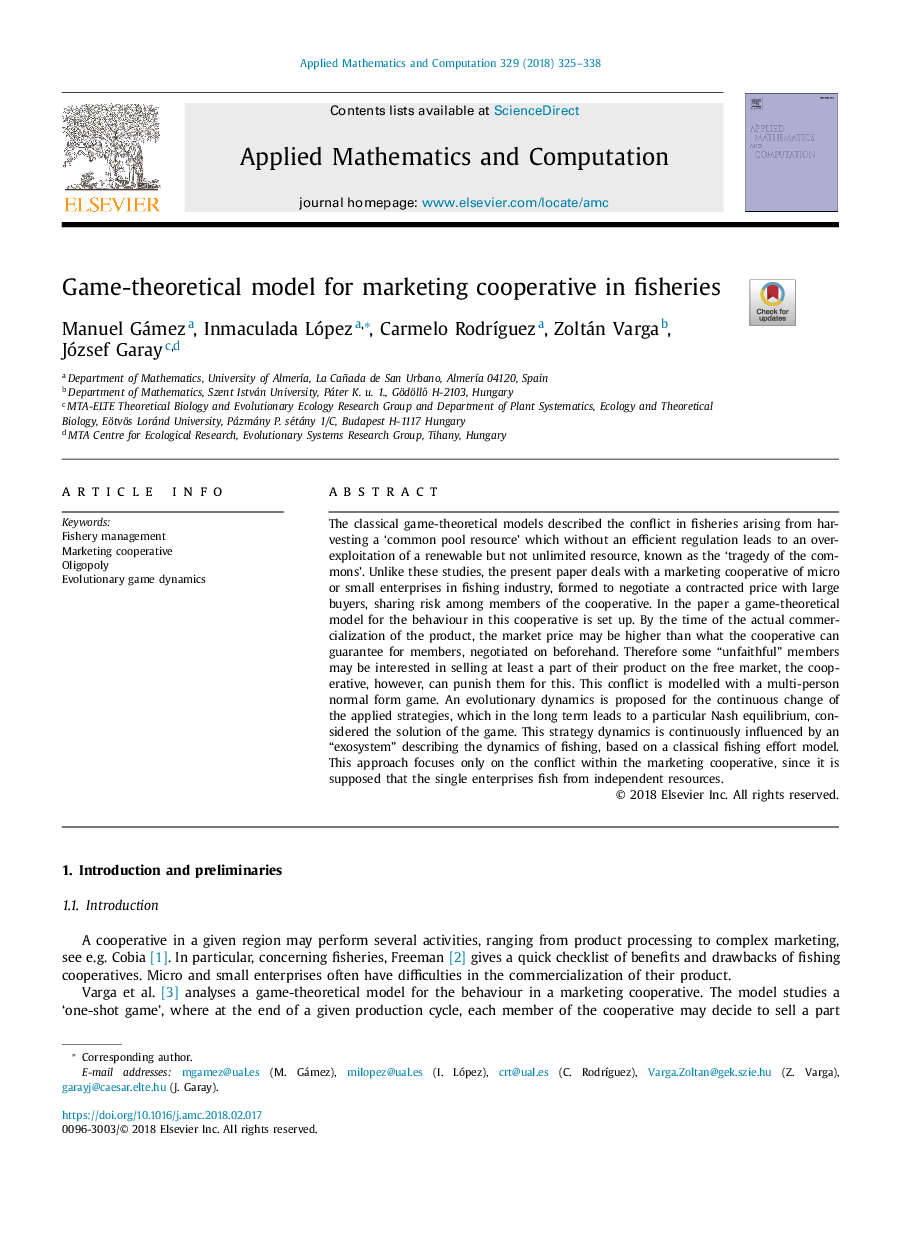| Article ID | Journal | Published Year | Pages | File Type |
|---|---|---|---|---|
| 8901075 | Applied Mathematics and Computation | 2018 | 14 Pages |
Abstract
The classical game-theoretical models described the conflict in fisheries arising from harvesting a 'common pool resource' which without an efficient regulation leads to an overexploitation of a renewable but not unlimited resource, known as the 'tragedy of the commons'. Unlike these studies, the present paper deals with a marketing cooperative of micro or small enterprises in fishing industry, formed to negotiate a contracted price with large buyers, sharing risk among members of the cooperative. In the paper a game-theoretical model for the behaviour in this cooperative is set up. By the time of the actual commercialization of the product, the market price may be higher than what the cooperative can guarantee for members, negotiated on beforehand. Therefore some “unfaithful” members may be interested in selling at least a part of their product on the free market, the cooperative, however, can punish them for this. This conflict is modelled with a multi-person normal form game. An evolutionary dynamics is proposed for the continuous change of the applied strategies, which in the long term leads to a particular Nash equilibrium, considered the solution of the game. This strategy dynamics is continuously influenced by an “exosystem” describing the dynamics of fishing, based on a classical fishing effort model. This approach focuses only on the conflict within the marketing cooperative, since it is supposed that the single enterprises fish from independent resources.
Related Topics
Physical Sciences and Engineering
Mathematics
Applied Mathematics
Authors
Manuel Gámez, Inmaculada López, Carmelo RodrÃguez, Zoltán Varga, József Garay,
